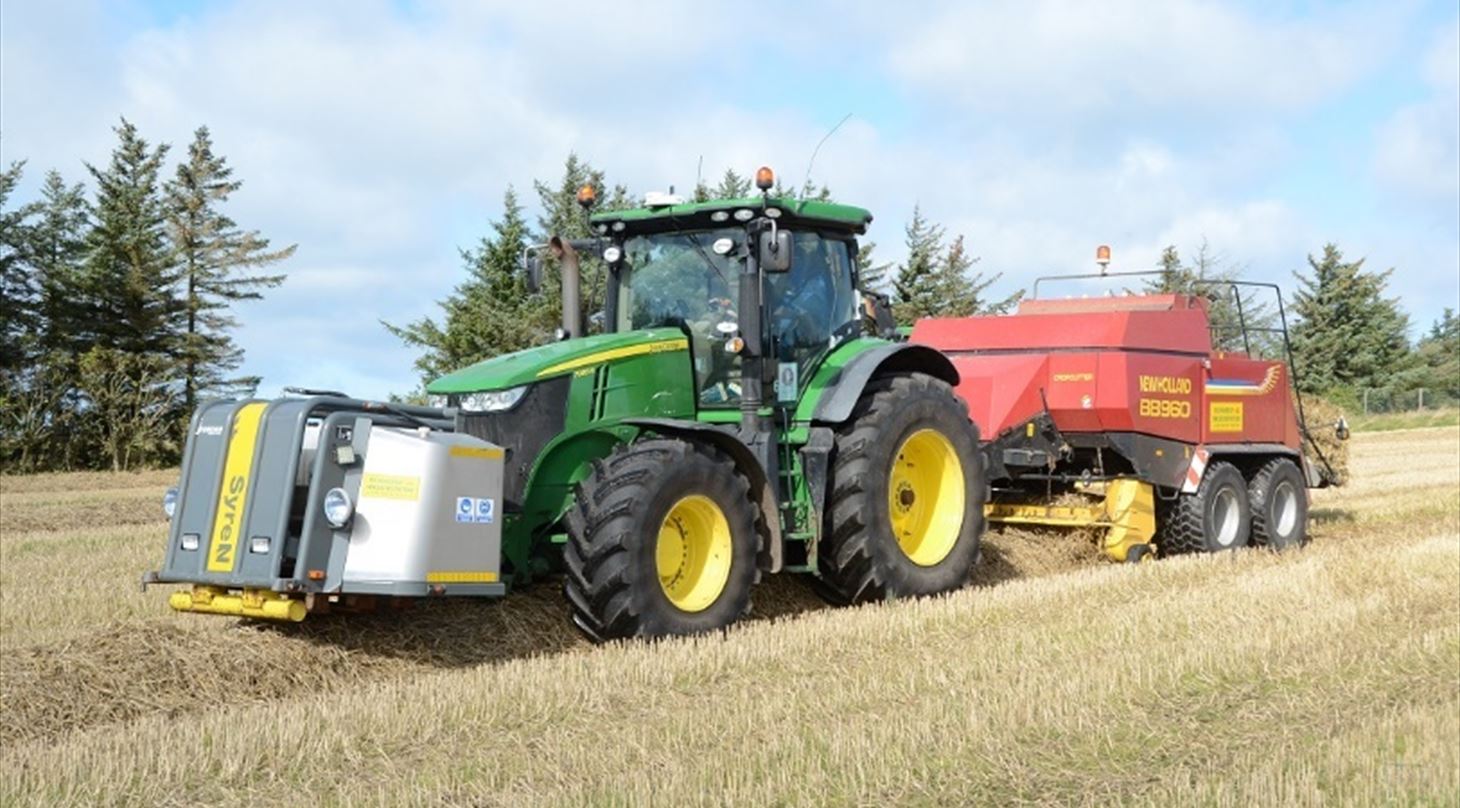
StrawSilage: Silage of straw for biogas
Project start and expected completion: 1st of July 2020 – 31th of December 2024
The goal of the project is to develop a biological pretreatment method for straw for biogas production based on ensiling wet straw in bales which are stacked and wrapped in plastic. Ensiling of straw is partly expected to provide a larger yield of methane from the straw, and partly to reduce the tendency of straw to create floating layers and be difficult to pump and stir in the biogas plant. Furthermore, the target is to increase the value of moist 2nd grade straw and take advantage of the opportunity to press straw in periods with wet conditions or directly after using the combine harvester so the field can be cleaned up fast. The concept will support manure-based biogas production in Denmark by making the straw resource a useable supplement in biogas production. This will have a positive effect on the climate by reducing emissions of methane from manure and by increasing the energy production from both manure and straw. Finally, it would have positive economic effects for both biogas plants and straw suppliers, as well as agricultural contractors and transport companies etc. in the supply chain from field to biogas plant.
Goals for the project
- Making methane production from straw faster and increasing the methane potential with at least 30 percent by using ensiling of straw as pre-treatment.
- Increasing the amount of straw and dry matter content in the biogas reactors without risk of formation of floating layers and reduced ´pumpability´.
- Optimizing the effect of pretreatment by ensiling of straw by investigating the effect of water content, particle size, adding different types and doses of silage additives (lactic acid bacteria, acid, brown juice etc.) and the duration of ensiling.
- Optimizing and increasing the flexibility in the straw supply chain by producing two straw bale products; straw silage for biogas production by pressing in wet periods and dry straw for combustion in dry periods.
- Developing and testing a system (POMI Wrap 8) for dense stacking and airtight wrapping of wet straw bales for outdoor ensiling and storage.
- Analyzing the technical and economic effects of the concept of ensiling straw for biogas production for the entire supply chain, from field to biogas production.
Participants
- Danish Technological Institute
- Aarhus University, Department of Enginerering
- Mkjeldal
- Danske Maskinstationer & Entreprenører (DM&E)
- POMI
- Skinnerup Maskinstation
- Stenhøjgaard
- AU-Vindmøller
Activities
The project consists of both research, development and demonstration. Research activities will involve testing of ensiling in lab-scale, investigating the significance of various factors (water content, silage additives, ensiling duration etc.), and the effect of ensiling will be analyzed e.g. in form of methane potential and chemical composition etc. Activities will also include development of a new method for analyzing methane potential, and straw silage will be tested in both batch-tests and continuous biogas reactors.
For development and demonstration, straw will be ensiled in pilot-scale and large-scale. Methodology for adding silage additives to the straw during baling wet straw will be developed. Moreover, the POMI system for wrapping straw will be further developed, so the bales are stacked and wrapped with the least possible access to oxygen. The ensiled straw will be used for tests in biogas reactors in pilot- scale at Aarhus university and in the full -scale biogas plants at Skinnerup Maskinstation and AU-Vindmøller (Ausumgaard). Finally, the technical and economic effects of baling and wrapping wet straw for biogas production will be analyzed.
Information from the project
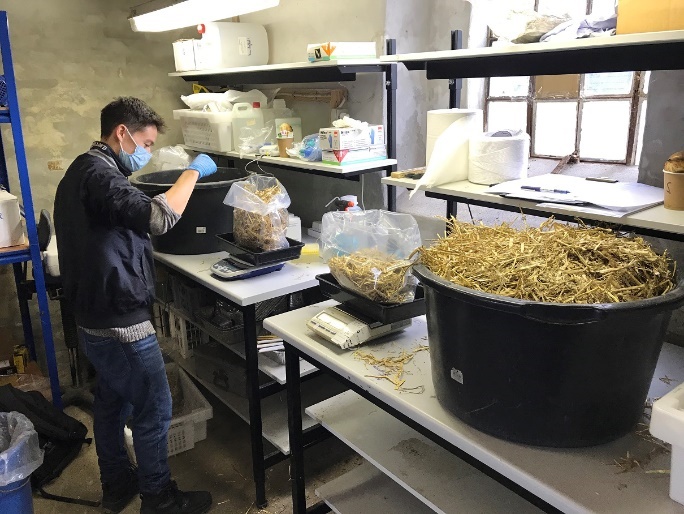 | 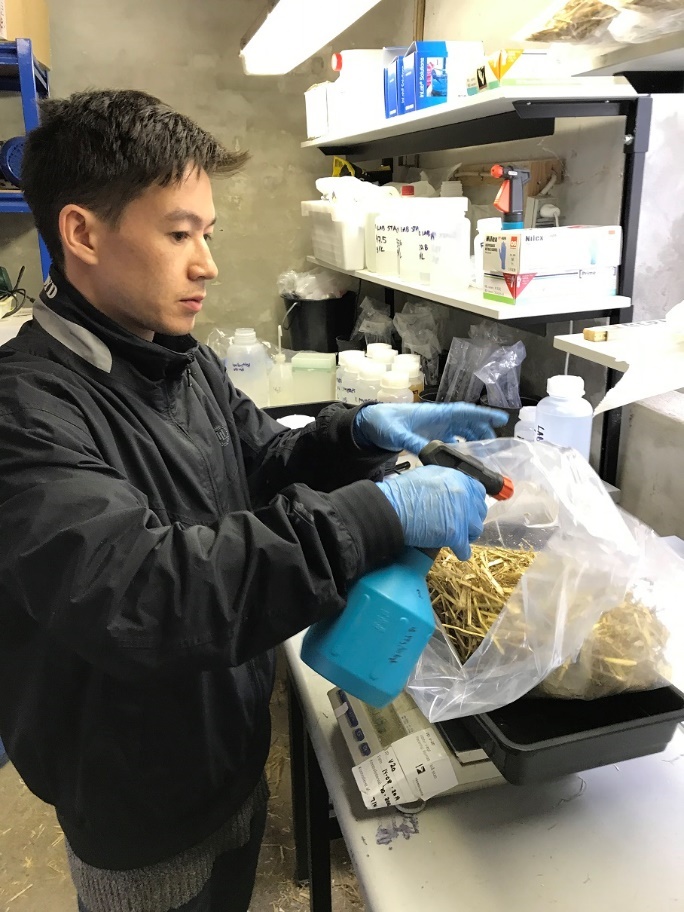 |
Lab-scale ensiling experiment with wet straw. Different water quantities and silage additives are added to the straw which is ensiles in vacuum bags after which the straw silage is analyzed for e.g. pH, chemical composition and methane potential. (Photo: Søren Ugilt Larsen, Danish Technological Institute).
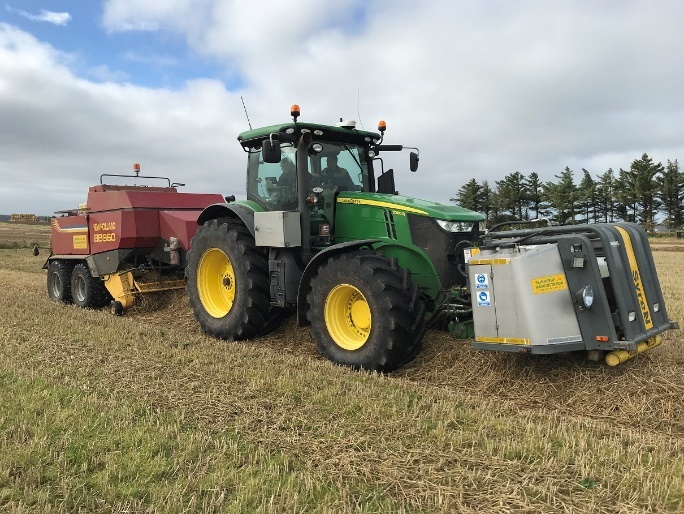 | 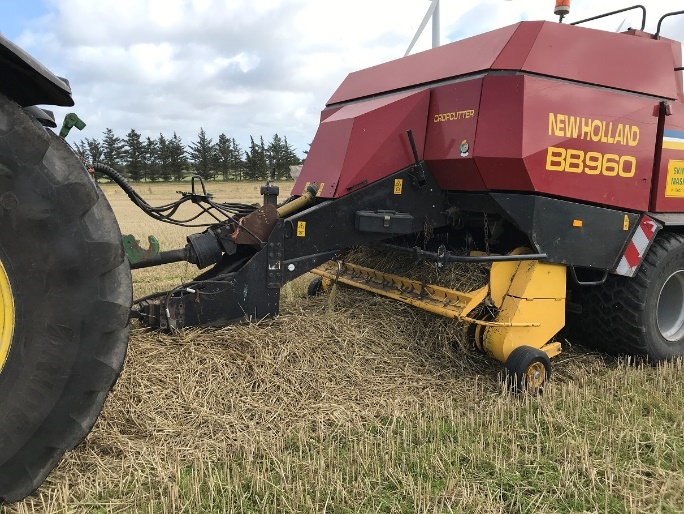 |
Ensiling experiments with wet straw in pilot-scale and large-scale. When baling wet straw, an ensiling agent can be sprayed onto the straw directly in front of the pick-up, and in this case, the ensiling agent is dosed with a SyreN system, that is normally used for dosing of sulfuric acid to acidify slurry. The picture on the right shows application of brown juice, which is a biproduct from production of grass protein. (Photo: Søren Ugilt Larsen, Danish Technological Institute).
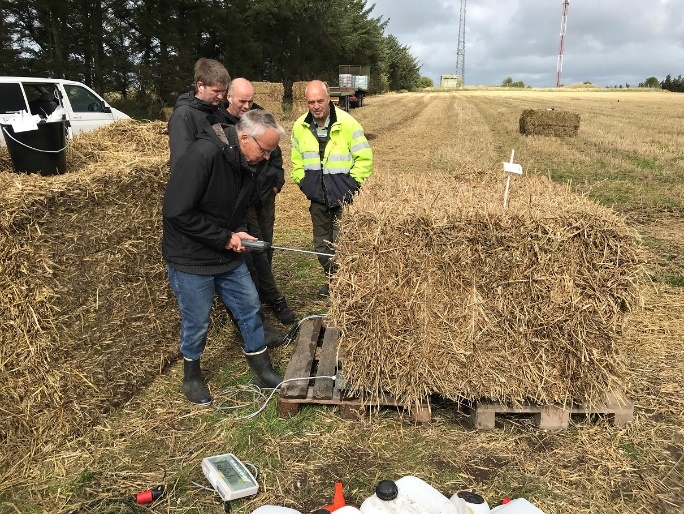 | 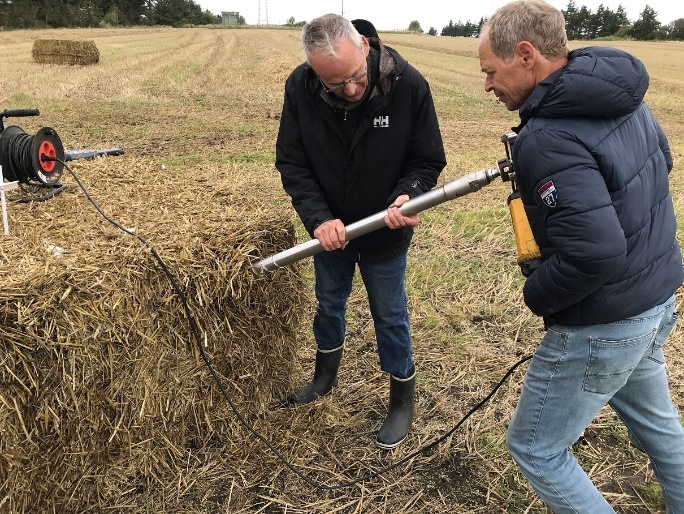 |
In the pilot-scale experiments, the bales with wet straw are weighed at trial start and samples are taken for analysis of quality before ensiling. After wrapping in plastic and ensiling for a few months, the bales are weighed again, and new samples are taken for analysis of the final quality of the straw silage. (Photo: Søren Ugilt Larsen, Danish Technological Institute).
The technical and logistical challenges and opportunities associated with ensiling straw have been outlined in the following report (in Danish)
About the project
Project nr.: 64020-1039
Concesseur: EUDP (The Energy Technology Development and Demonstration Programme)